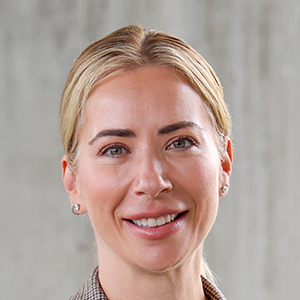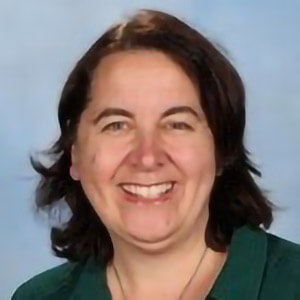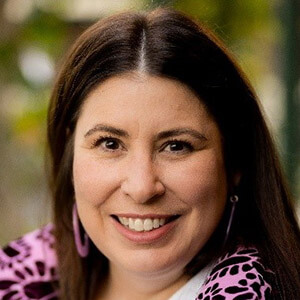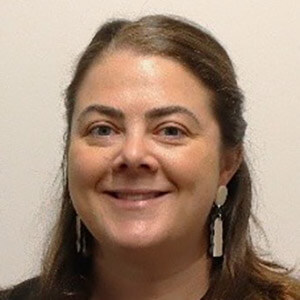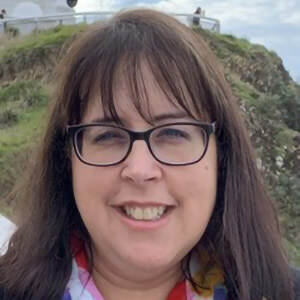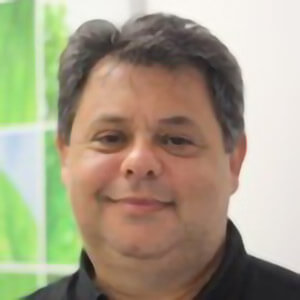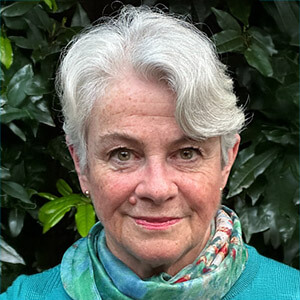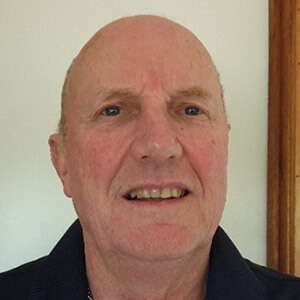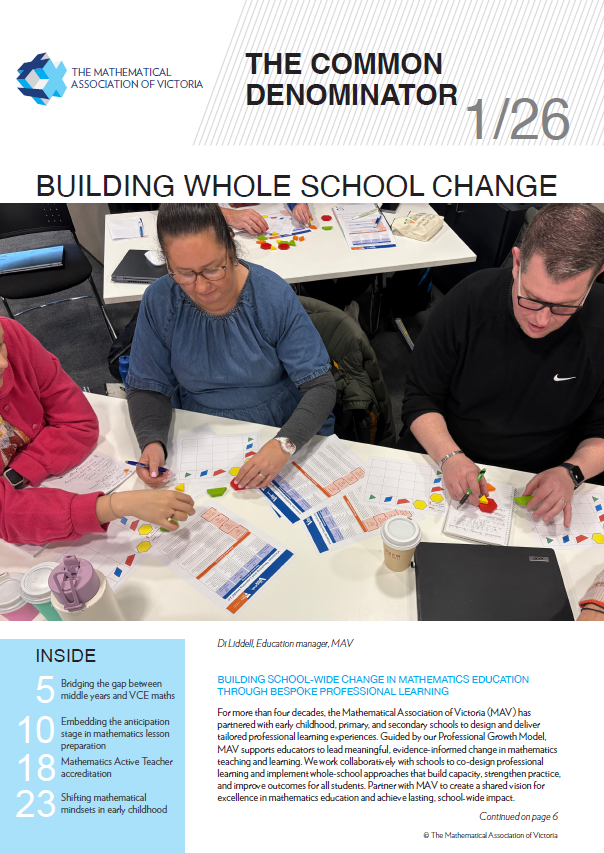Keynote Presenters
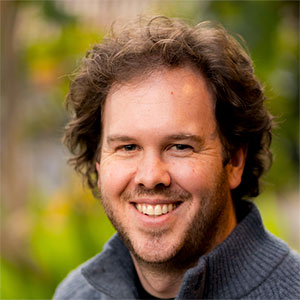
Dr Scott Cameron
Keynote Thursday 4 December: Guide on the Side or Sage on the Screen? Navigating the Critical and Effective Use of Generative AI in Mathematics Education (F - Year 12)
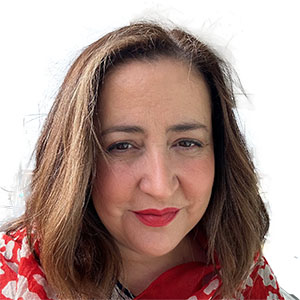
Dr Carmel Mesiti
Keynote Thursday 4 December: Guide on the Side or Sage on the Screen? Navigating the Critical and Effective Use of Generative AI in Mathematics Education (F - Year 12)
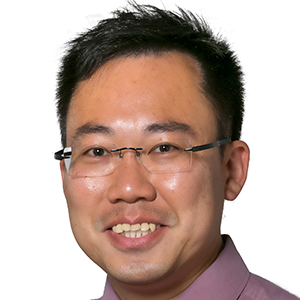
Dr Ban Heng Choy
Keynote Friday 5 December: Thriving in mathematics teaching: The role of productive teacher noticing (F - Year 12)
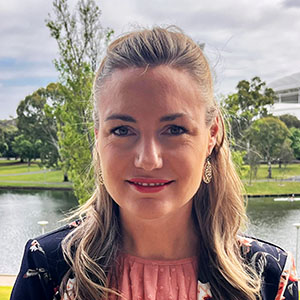
Dr Chelsea Cutting
Keynote Thursday 4 December: Spatialising the Curriculum: Setting the Foundations for Reasoning about Number in the Early Years and Beyond (F - Year 6)
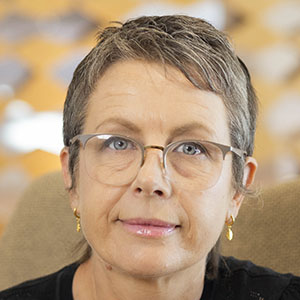
Sarah Hopkins
Keynote Friday 5 December: Children's Use of Derived-Fact Strategies for Addition and Subtraction Within 20 (F - Year 6)
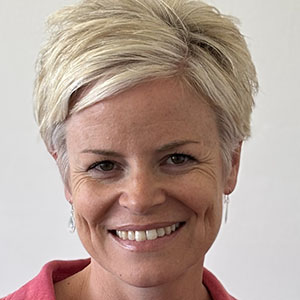
Jane Hubbard
Keynote Friday 5 December: Orchestrating learning conditions to support thriving problem-solvers in mathematics (F - Year 6)
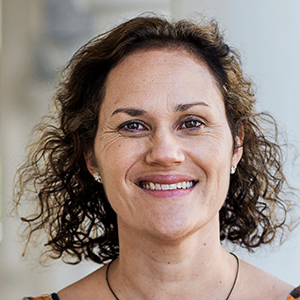
Professor Jodie Hunter
Keynote Thursdsay 4 December: Enhancing Students' Reasoning Through Teacher Questioning (F - Y6)
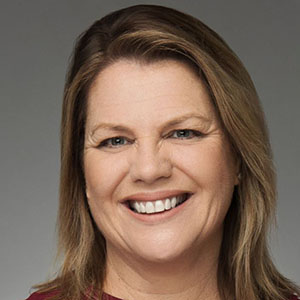
Dr Kristen Tripet
Keynote Friday 5 December: Students thriving mathematically - What does it look like? (F - Year 12)
Keynote Panels
Keynote Panel Thursday 4 December
Sarah Asome, Kate Copping, Eamon Light, Patty Mete, Tara Richardson
Leading Change in Mathematics: Contextual Stories of Impact, Frameworks, and Transformation (F01 - Y12) Leadership and agency
Keynote Friday 5 December
Lisa De Bortoli, Tom Mahoney, Dr Chris Matthews, Professor Dianne Siemon, Professor Peter Sullivan
How Are We Thriving? Unpacking Data, Debunking Myths, and Reframing the Narrative in Mathematics Education (F01 - Y12) Contemporary challenges and successes
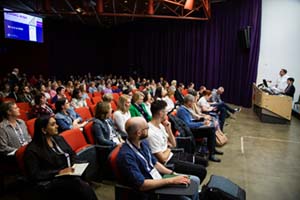
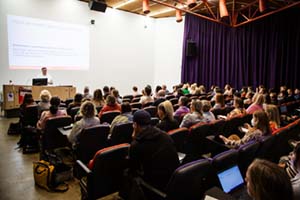
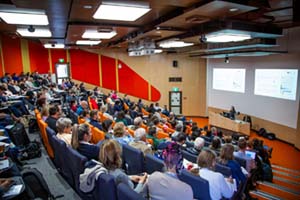
Presenter Profiles
Dr Scott Cameron is a lecturer in mathematics education and clinical practice coordinator in the Master of Teaching (Secondary) program at the University of Melbourne. He oversees the professional development of pre-service teachers during their placement experiences. He teaches mathematics education subjects and is dedicated to enhancing pre-service teachers' pedagogical content knowledge to prepare them for effective classroom practice. Dr Cameron's PhD research investigated senior secondary students' use of computer algebra systems, exploring their attitudes, usage patterns, and influencing factors. Using a longitudinal mixed methods case study, his work provides valuable insights for integrating technology into mathematics teaching. Building on this foundation, he now examines the impact of emerging technologies, including mathematics analysis software and AI, on mathematics teaching and learning, reflecting his commitment to innovation in mathematics education.
Dr Carmel Mesiti is a senior lecturer in mathematics education and course coordinator for the Master of Teaching (Primary) program at the University of Melbourne. With a career spanning primary, secondary, and tertiary education, she is a passionate educator and researcher focused on advancing mathematics teaching and learning. Dr Mesiti has served as a research fellow on the ARC funded projects and led The International Classroom Lexicon Project, collaborating with research teams worldwide. Carmel's work explores mathematics teaching through video-based research, pedagogical language, and instructional approaches across cultures. Co-leader of the ICCR and research co-lead of MSTEG, she examines classroom practices and emerging methodologies, including generative AI for education. A former secondary mathematics teacher and head of mathematics, Dr Mesiti conducts professional development workshops, sharing insights from her extensive experience.
Keynote Presentation: Thursday 4 December 2025 - Dr Scott Cameron & Dr Carmel Mesiti
Guide on the Side or Sage on the Screen? Navigating the Critical and Effective Use of Generative AI in Mathematics Education (F - Year 12)
Innovation and inspiration; Pedagogy and curriculum; Contemporary challenges and successes
As GenAI tools become increasingly accessible, mathematics educators are faced with critical questions: What role should GenAI play in teaching and learning? How knowledgeable and pedagogically reliable is GenAI? And most importantly, how can teachers critically and effectively use GenAI without compromising their personal expertise and desire to support the deep mathematical reasoning and conceptual development of their students?
This keynote positions GenAI as a 'guide on the side' - a tool that supports, rather than replaces, teachers. From lesson planning to differentiation and resource creation, GenAI can be a powerful ally when used with intention and discernment. Teachers will be invited to reflect on their pedagogical values, critically evaluate AI-generated content, and consider when, how, and why to use these tools. Participants will leave equipped to use GenAI and empowered to shape it into a tool that amplifies their judgment, deepens student learning, and aligns with their educational purpose.
Key Takeaways:
- Teachers remain the experts.
- Critical evaluation is essential.
- Effective use is intentional use.
Dr. Ban Heng CHOY is an Associate Professor in Mathematics Education and the Assistant Dean for Partnerships (Teacher Education & Undergraduate Programmes) at the National Institute of Education, Nanyang Technological University, Singapore. A recipient of the NIE Overseas Graduate Scholarship, Dr. Choy received his PhD from the University of Auckland, New Zealand, in 2015. His area of research lies in developing and enhancing mathematics teaching expertise by improving teachers' abilities to notice critical mathematical and instructional details during planning, enactment, and review of lessons. He also serves as one of the co-Heads for meriSTEM@NIE, a Multi-centric Education, Research, and Industry STEM centre in NIE.
Keynote Presentation: Friday 5 December 2025
Thriving in mathematics teaching: The role of productive teacher noticing (F - Year 12)
Pedagogy and curriculum; Contemporary challenges and successes; Innovation and inspiration
What are the key characteristics of effective mathematics teaching? Against the backdrop of highly polarised discourse on what constitutes high-quality instruction, teachers have been pulled in different pedagogical directions, although it is widely recognised that effective teaching can take different forms. How can teachers thrive as they continue doing the ambitious work of improving their teaching expertise amidst this pedagogically divisive educational landscape? In this keynote, I aim to argue that the key to unlocking the kind of teaching that empowers teachers to be adaptive in their instruction—a hallmark of effective teaching—is to improve their ability to productively notice critical mathematical and instructional details as they prepare, teach, and reflect on their lessons. By seeing every lesson as an opportunity for improving teaching, teachers can begin to focus on providing high-quality learning experiences for their students to learn and do mathematics.
Takeaways
- To thrive in mathematics teaching, mathematics teachers need to learn to be adaptive, embracing different pedagogical approaches to meet the diverse needs of their students.
- Productive noticing is the key to unlocking adaptive teaching, a hallmark of effective teaching.
Dr. Chelsea Cutting is a Senior Lecturer in Mathematics Education at the University of South Australia. With over a decade of experience, she coordinates early childhood and primary mathematics education programs, focusing on developing innovative, play-based pedagogies. Her research focuses on spatial reasoning and its role in young children's mathematical development, particularly in understanding early fraction concepts. Dr. Cutting has contributed to national STEM education initiatives and has been recognized with an Australian Award for University Teaching Citation for Outstanding Contributions to Student Learning. Her work emphasizes the importance of intuitive, context-rich learning environments that promote authentic engagement with mathematical ideas. Through her teaching and research, Dr. Cutting advocates for educational practices that empower educators to foster deep, meaningful learning experiences in mathematics education.
Keynote Presentation: Thursday 4 December 2025
Spatialising the Curriculum: Setting the Foundations for Reasoning about Number in the Early Years and Beyond (F - Year 6)
Pedagogy and curriculum; Innovation and inspiration;
Children across the primary years are introduced to a broad range of rational number concepts, including whole numbers, fractions, place value, and operations. While these ideas are explored in concrete and symbolic contexts, a deep understanding of number and quantity is supported by spatial reasoning. Spatial reasoning refers to our ability to visualise objects or environments, navigate space, and predict how objects or spaces might look when moved, rotated or transformed. These skills are often associated with measurement and geometry; however, they are not separate from reasoning about number and quantity - rather, they are embedded in many of the concrete experiences through which children experience. When children build, compare, partition, or move objects, they use spatial reasoning to make sense of quantity and number relationships. This presentation highlights how a spatial reasoning lens in teaching mathematics can offer a powerful foundation for developing rational number knowledge. By 'spatialising the mathematics curriculum', we can support children in the early and middle primary years to reason with complex numerical concepts in meaningful, connected ways.
Takeaways
- An understanding of spatial reasoning and its importance in developing rational number knowledge.
- An understanding of the interconnectedness between rational number concepts in the early years of primary schooling.
- Clear examples and ideas for developing a spatialised approach to teaching number.
Dr Aylie Davidson is an experienced mathematics educator having worked in teaching and leadership roles, initial teacher education, and project leadership for the Department of Education Victoria. Aylie's research examines ways to help teachers work together to plan mathematics learning sequences and experiences that involve a range of task types and pedagogies. Her other research interests include mathematical reasoning; middle school leadership; supporting diverse learners; and student engagement. Aylie enjoys working with and learning from teachers and school leaders to make learning relevant, practical and sustainable. Aylie currently works as a lecturer in mathematics education at Deakin University and is the Editor of Prime Number.
Keynote Presentation: Thursday 4 December 2025
Informed and impactful planning (F- Year 12)
Pedagogy and curriculum; Leadership and agency
Mathematics planning is messy business and can be overwhelming, especially when designing learning sequences. However, the decisions teachers make when planning have the power to directly impact student engagement and learning in mathematics. So, the question arises, 'What should teachers focus on when planning mathematics that will make a difference to student learning?' In this keynote, Aylie will share insights from her research and work with in-service teachers about effective planning in mathematics. In particular, Aylie will offer a set of guiding principles intended to be used alongside a Mathematics Planning Model (MPM) to support teachers to stay maths-focused while navigating the complexities of planning. The guiding principles and MPM can be adapted and applied to various school contexts to enhance teachers' regular planning routines.
Takeaways
- The MPM and 6 guiding principles work together to navigate the complexities of mathematics planning.
- Learning sequences that are developed collaboratively, where teachers share their knowledge and ideas, has been shown to positively impact student learning and build teacher capacity.
- Coherent and connected learning sequences help students to develop relational understanding, see the bigger picture, and remember!
Sarah Hopkins is an Associate Professor of Mathematics Education at Monash University. Her research is advancing the interdisciplinary field of Mathematical Cognition, a field that combines knowledge and methods from cognitive psychology and mathematics education. Focusing on children's strategy development, she has led six projects to investigate children's persistent use of counting strategies for basic arithmetic. Project findings have resulted in the invention of the Keyboard, a tool that makes use of children's ability to enumerate small quantities using visual-spatial perception rather than counting. She is currently leading an ARC Discovery Project to examine how the Keyboard can be used in classrooms to enhance mathematics learning in lower primary school and alter the long-term achievement trajectories for children who find learning mathematics difficult.
Keynote Presentation: Friday 5 December 2025
Children's Use of Derived-Fact Strategies for Addition and Subtraction Within 20 (F to Year 6)
Contemporary challenges and successes; Pedagogy and curriculum
To thrive in mathematics learning, it is well established that children need to learn to solve basic arithmetic problems using retrieval and derived-fact strategies [e.g., 7 + 8 = (7 + 7) + 1 = 14 + 1]. Yet, there is surprisingly little research to illuminate exactly what number facts children should learn to retrieve (just know) and what number facts might be suitably derived. In this address, I present findings from a study where we individually interviewed 132 children in Years 3 and 4 to investigate the different derived-fact strategies they used to solve addition and subtraction problems within 20. Findings indicate the prevalent use of derived-fact strategies and their comparative efficiency, as well as the known facts that are most commonly used to derive answers. Implications are discussed in terms of which number facts children should know and how the teaching of subtraction might be improved.
Takeaways
- Retrieval is not synonymous with memorisation.
- Being able to reliably retrieve facts within three specific fact communities - add-to-10, add-10, and add-small - is pivotal for unlocking derived strategies and enabling flexible, efficient mental computation.
- For subtraction problems, derived-fact strategies are faster than counting strategies but are only marginally more accurate.
Jane Hubbard is a mathematics educator who has recently commenced a role as a lecturer at Deakin University, following the completion of her PhD in 2024. Her research investigated the experiences of Year 2 students as they engaged in problem-solving approaches to mathematics through sequences of challenging tasks. Her findings revealed that when given the opportunity, students can significantly improve their mathematical competence by learning through problem-solving approaches and enjoy the experience of being challenged. Jane's thesis emphasised the importance of holistically evaluating student progress and incorporating this knowledge into teacher assessment practices. Jane has over 20 years' experience in primary education and 15 years in leading school wide improvement in mathematics. As often as possible, she likes to get into classrooms to work alongside teachers and help them to develop stronger mathematical knowledge for teaching.
Keynote Presentation: Friday 5 December 2025
Orchestrating learning conditions to support thriving problem-solvers in mathematics (F - Year 6)
Pedagogy and curriculum; Contemporary challenges and successes; Innovation and inspiration
In this session Jane will explore particular classroom conditions that teachers can facilitate and monitor to enable students to thrive when learning through problem-solving approaches in mathematics. Drawing upon her PhD findings, Jane will present a conceptual model that can be adopted by educators to better understand the interconnected relationships that exist between the cognitive and affective domains of learning, noting how these can be directly influenced by different learning environments including current instructional and assessment practices. Using this holistic framing, the affordances and constraints of offering suitable mathematical problem-solving experiences to students of all ability levels will be discussed.
Takeaways
- Appreciating the interconnectedness relationships between cognitive and affective learning domains.
- Designing and monitoring enabling conditions for learning.
- Holistic evaluation of mathematics learning and student progress.
Professor Jodie Hunter is an educator and researcher in mathematics education and Pacific education. Previously, she was a Research Fellow and Lecturer at the University of Plymouth, United Kingdom and a primary school teacher in New Zealand. Professor Hunter is currently a Rutherford Discovery Fellow and has been a Leverhulme Visiting Professor and a Fulbright Scholar. She has won a number of prestigious research awards including the British Society in Research in Learning Mathematics Janet Duffin award, the New Zealand Association of Research in Education research group award and the Mathematics Education Research Group of Australasia practical implications award. Her research interests and expertise include mathematics education for equity and social justice, early algebra, teacher education, Pacific education, and culturally sustaining pedagogy.
Keynote Presentation: Thursday 4 December 2025
Culturally sustaining mathematics teaching: A strengths based approach (F - Year 12)
Contemporary challenges and successes; Pedagogy and curriculum; Innovation and inspiration
Internationally and within Australia, diverse groups of people including indigenous, migrant, and other minority communities are under-represented in mathematics with an accompanying 'gap story' in relation to achievement within school systems. A subsequent outcome is a lack of awareness of the rich mathematics and strengths that students from these communities bring to mathematics classrooms. In this presentation, I draw on data collected as part of a larger professional learning and development project 'Developing Mathematical Inquiry Communities' which focuses on culturally sustaining pedagogy and ambitious mathematics teaching to develop equity for diverse students in mathematics classrooms. The findings highlight how teachers can develop equitable outcomes by drawing on strength-based approaches. I argue that a shift to understanding and honouring different knowledge systems and ways of being provides opportunities for students to learn mathematics in ways that support mathematical achievement as well as the development of strong mathematical dispositions and identities.
Key Takeaways
- Teachers can develop equitable outcomes by drawing on strength-based approaches.
- Honouring and understanding different knowledge systems provides opportunities to support mathematical achievement as well as the development of strong mathematical dispositions and identities.
Dr. Kristen Tripet leads the national mathematics program, reSolve Mathematics, at the Australian Academy of Science. With a background as a mathematics teacher educator, she works with both pre-service and in-service teachers to deepen their understanding of mathematics and enhance their teaching practice. Her particular interests include mathematical thinking and problem-solving, students' conceptual understanding of mathematical ideas, and the design of rich tasks that promote both thinking and understanding.
Kristen's contributions to mathematics education are widely recognised both nationally and internationally. She plays an active role in national and international reference groups and expert advisory panels and is a sought-after speaker in the field. Her work has contributed to improving teaching practice and student learning outcomes across diverse educational contexts.
Keynote Presentation: Friday 5 December 2025
Students thriving mathematically - What does it look like? (F - Year 12)
Pedagogy and curriculum; Innovation and inspiration
Teachers want their students to thrive mathematically—but what does that truly look like? Francis Su, a distinguished mathematician and author of Mathematics for Human Flourishing, writes, 'Exploration and understanding are at the heart of what it means to do mathematics.' For students to thrive, they must be exploring patterns and relationships, making conjectures, forming generalisations, justifying their reasoning, and representing their thinking in multiple ways.
In this keynote, Kristen will unpack both the what and the how of mathematical thriving, shifting the conversation from inquiry-based teaching to mathematical inquiry as the active work of the student. Kristen will also examine the important role that different pedagogical practices can play in supporting students' mathematical inquiry, including explicit teaching, demonstrating how purposeful instruction and inquiry work together in the mathematics classroom.
Key Takeaway
- Understand what it means for students to thrive mathematically as knowers and doers of mathematics.
- Learn key mathematical practices students use in when engaged in genuine mathematical inquiry.
- Explore how different pedagogical practices can support and enhance students' mathematical inquiry.
Panelist Profiles
Keynote Panel Thursday 4 December
Sarah Asome, Kate Copping, Eamon Light, Patty Mete, Tara Richardson
Leading Change in Mathematics: Contextual Stories of Impact, Frameworks, and Transformation (F01 - Y12) Leadership and agency.
This panel showcases the journeys of mathematics education leaders who have successfully implemented teaching and learning frameworks that have led to meaningful and measurable improvements in student engagement and achievement.
Across diverse school and system contexts, panellists will share their approaches to leading change, the frameworks that guided their work, and the professional learning and cultural shifts that supported sustained impact.
The session offers valuable insights into what effective leadership in mathematics education looks like in practice—highlighting both the challenges faced and the enablers of success—and how context plays a significant role in leading change in schools.
Participants will leave inspired by real-world examples and equipped with practical ideas to support their own improvement journeys and approaches to leading change in their school settings.
Sarah Asome is the Principal at Bentleigh West Primary School in Victoria. She has been instrumental in leading the change at BWPS but also supported many colleagues Nationwide and overseas to implement evidence-based literacy and numeracy02Finstruction.
In 2015, Sarah was awarded 018Outstanding Primary Teacher019 in the Victorian Education Excellence Awards.02F02FIn 2023, Bentleigh West Primary School won the Victorian Education Excellence Award (VEEA) for 018Outstanding Inclusive Education019. Bentleigh West Primary School were a case study school in the recent Grattan Maths Guarantee Report and guide for Principals. The school maintains exceptional maths results through their instructional model of Explicit Instruction.
Kate Copping is a lecturer in mathematics education and clinical practice coordinator in the Master of Teaching (Primary) program at the University of Melbourne. She teaches mathematics education in primary and early childhood/primary programs, building preservice teachers019 pedagogical content knowledge and oversees the professional development of pre-service teachers during placements. Kate has extensive teaching experience in Australia and the US.
She has served as vice president of MAV, contributed to NAPLAN development, and was part of the RiMEA11 editorial team, supporting mathematics education research. Kate019s PhD explores how primary mathematics leadership is conceptualised, experienced, and enacted in schools, positioning these leaders as key middle leaders. Her work informs school policy and decision making, with a focus on teacher professional learning, assessment, and strategies to enhance student engagement and understanding in mathematics.
Eamon Light is a dedicated mathematics educator with 19 years of experience across primary schools and universities. He supports both preservice and inservice teachers to build confidence and competence in teaching mathematics. Eamon believes that critical, creative and independent thinking should be nurtured from an early age. He champions strong classroom culture and the development of positive mathematical dispositions as foundations for meaningful learning, using real-world contexts to make mathematics relevant and accessible.
Eamon prioritises thoughtful pedagogy, teacher agency and mathematical reasoning to help students not only understand concepts but also develop curiosity and engagement. Eamon continually explores and refines innovative strategies, equipping educators with practical tools to navigate the evolving landscape of mathematics education.
Patrick 'Patty' Mete is a mathematics teacher, mathematics curriculum and learning specialist, and mathematician. He taught Year 5 to university mathematics at Haileybury and The Knox School, and as a teaching associate at Monash University. Patty completed his Honours in Mathematics in probability theory, optimisation and stochastics.
Moving into teaching, Patty has developed a love for teaching upper-primary and lower-secondary school mathematics; the ability to catch students earlier in their mathematics learning, build a love of learning mathematics, and support the development of successful mathematics students and teachers at these pivotal year levels has been fulfilling for Patty. Patty019s goals in mathematics education are to engage and challenge students through the creative application of mathematics and to develop and lead a culture and curriculum of informed mathematics learning.
Tara Richardson is the Mathematics Domain Leader at Greater Shepparton Secondary College. She has led her team through extensive professional learning over the past five years to co-design and implement a comprehensive mathematics curriculum from the ground up. A key feature of this curriculum is the use of the Concrete013Representational013Abstract (CRA) approach, particularly in the teaching of linear algebra. Tara is committed to building teacher expertise and fostering deep mathematical understanding, ensuring all students experience success through consistent, evidence-informed practice.
Keynote Friday 5 December
Lisa De Bortoli, Tom Mahoney, Dr Chris Matthews, Professor Dianne Siemon, Professor Peter Sullivan
How Are We Thriving? Unpacking Data, Debunking Myths, and Reframing the Narrative in Mathematics Education (F01 - Y12) Contemporary challenges and successes
This panel brings together education researchers and experts to explain how Australian students are performing in mathematics, drawing on data from PISA, TIMSS, and NAPLAN at state, national, and international levels.
Amid ongoing media commentary and public concern, this session aims to reframe the narrative by highlighting the strengths and areas in which Australian students are demonstrating success in mathematics. The panel will also address common misconceptions about Australia’s performance and offer evidence-informed insights into current trends in students’ mathematical achievement.
Panellists will discuss what the data actually tells us about student achievement, equity, and system performance. They will also consider what this means for the future of mathematics education in Australia, including identifying areas of teaching and learning that hold potential for further thriving.
Participants will gain a clearer understanding of how we are thriving in mathematics education and where strategic focus is needed to ensure continued progress.
Lisa Debortoli is a Senior Research Fellow in the Assessment Development, Implementation and Reporting research division at the Australian Council for Educational Research (ACER), where she has worked since 1995. She has extensive experience in managing and leading international educational assessment projects and is currently the National Project Manager for the OECD Programme for International Student Assessment (PISA) in Australia.
Tom Mahoney is a numeracy specialist, teacher and educator of secondary Mathematics students from Melbourne, currently completing a PhD in Educational Philosophy part time through Deakin University. His research explores the influence of dominant educational.
Professor Chris Matthews is from the Quandamooka people of Minjerribah (Stradbroke Island) in Queensland Australia. Chris received a PhD in applied mathematics from Griffith University and was a Senior Lecturer in applied mathematics at the Griffith School of Environment, Griffith University. Over the last ten years, Chris developed a deeper interest in mathematics education for Aboriginal and Torres Strait Islander learners and exploring the connections between mathematics and Aboriginal and Torres Strait Islander knowledges.
Chris is currently the Chair of the Aboriginal and Torres Strait Islander Mathematics Alliance (ATSIMA) that aims to transform mathematics education for Aboriginal and Torres Strait Islander learners. Chris is also the Associate Dean (Indigenous Leadership and Engagement) in the Science Faculty at University Technology of Sydney (UTS). As part of this role, Chris will be leading a team of academics to transform the Science curriculum to meet the Indigenous Graduate Attribute and develop a Community of Indigenous STEM professionals at UTS.
Dianne Siemon is an Emeritus Professor at RMIT University. She was involved in pre-service mathematics education for well over 30 years and remains actively involved in the professional development of practicing teachers, particularly in relation to the development of the 018big ideas019 in Number and the use of rich assessment tasks to inform teaching. Di has directed a number of large-scale research projects, most recently, the Reframing Mathematical Futures II project that developed validated assessment tools for algebraic, geometrical and statistical reasoning in the middle years and evidenced-based, targeted teaching advice to help identify and scaffold students019 learning. Di is a Past President and Life Member of both the Australian Association of Mathematics Teachers and the Mathematical Association of Victoria.
Peter Sullivan is an Emeritus Professor of Education at Monash University. He was author of the Shape of the Australian Mathematics Curriculum, and the Australian Education Review publication, Teaching mathematics: Using research-informed strategies, that has now been downloaded over 260,000 times from the ACER website.
For nearly 30 years Peter has been researching the power of open-ended mathematics tasks, ways of structuring lessons around those tasks, processes for effectively differentiating learning opportunities and the importance of building sequences of learning.

